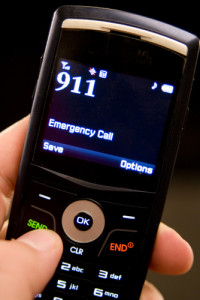Infliction of injury, more commonly called “spousal abuse,” is a California domestic violence crime that applies to intimate partners. These partners may be married or divorced, living together or formerly living together, or have children in common. The law applies to both heterosexuals and same-sex partnerships. If an individual willfully inflicts any injury, no matter how minor, upon the body of an intimate partner, he or she can be charged with a felony, punishable by up to four years in prison and a fine of up to $6,000. This charge can be brought against a defendant even if he or she barely touched the intimate partner.
With the proof of injury set so low and the consequences of a conviction set so high, facing an infliction of injury charge is no joke. That is why it is imperative for the accused to hire an attorney who is knowledgeable not only with respect to California domestic abuse crimes but with the types of evidentiary issues that frequently arise during these types of trials. The experienced criminal defense lawyers at The Kavinoky Law Firm have successfully defended countless individuals in infliction of injury cases. They receive ongoing training and education about intimate partner abuse cases and the issues that commonly surround these types of cases. They know how to argue for admission or exclusion of hearsay and 911 call evidence to provide the most effective defense for their clients.
“Hearsay” is a legal term that refers to statements that were made out of court that are later offered in court as evidence of their truth. Although hearsay evidence is generally inadmissible in criminal proceedings, there are exceptions to that rule, and intimate partner abuse cases are one of those exceptions. California has decided that hearsay statements, including 911 telephone calls, are relevant in domestic violence cases. This exception admits into evidence statements made by the complaining witness at the time when he or she was experiencing or witnessing the violent act or acts that are the subject of the case. The rationale behind this exception is that the spontaneity of such statements and the lack of opportunity for reflection and deliberate fabrication provide an adequate guarantee of their trustworthiness. Clearly this isn’t the case in reality, as many 911 calls have been placed under false pretenses and based on underlying motives such as anger, revenge and jealousy. Nonetheless, these statements are admissible into evidence and in a vigorous effort to convict the defendant, the prosecutor will seek to have the officer who took the complaint read the alleged victim’s statements to the jury and will also ask the judge to play the recorded 911 call for the jury. As with all areas of the law, even the exceptions have exceptions, which is why it is so important to have professional legal representation that is familiar with this area of the law.
Because of the highly complex and technical rules (and exceptions to those rules) that come into play in a California intimate partner violence case, having a skilled and qualified defense lawyer who knows how to exclude or downplay this type of evidence is critical. The attorneys at The Kavinoky Law Firm have both the knowledge and experience to aggressively tackle any issue that may arise in an infliction of injury case. Whether the allegation stems from an intense, emotional dispute that took a turn for the worse, from a false report, or from a simple mistake, professional guidance can help ease a difficult situation. When things are at their worst, the attorneys from The Kavinoky Law Firm are at their best! Click here for a free consultation and for the best representation.


